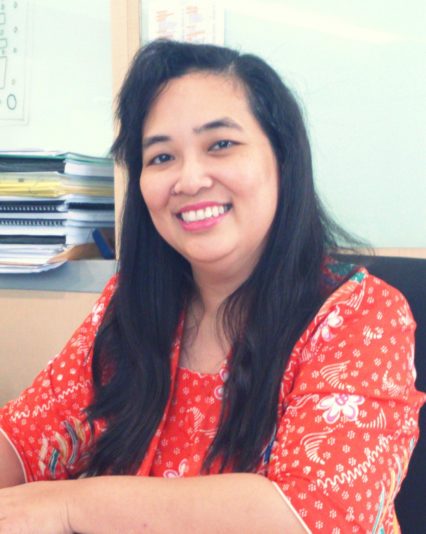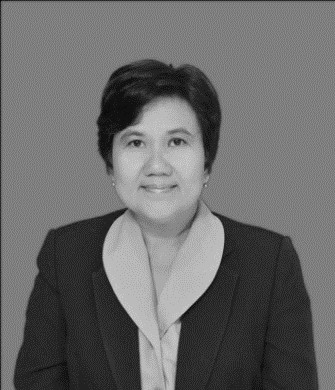Case Document
FROM STREET HAWKER TO EDUCATION TECHNOLOGY: THE STORY OF A YOUNG ENTREPRENEUR
This case study highlights a young entrepreneur named Ansari Kadir, who can be said to be the person behind the SangPisang product brand, which is better known as belonging to Kaesang Pangarep, the son of the seventh President of the Republic of Indonesia. Ansari started out as an entrepreneur when he was still working as a salesperson at an automotive company. Although when Ansari entered the business, it was still on a trial basis because he felt safe with his main job. In the end, when he left his white-collar job and started selling crispy fried bananas on a cart, it became the beginning of Ansari really entering the business world. However, he realized that his financial capabilities were not good enough, so he racked his brains to develop a business plan proposal that he thought had the potential to be offered to investors.
CAPTURING INDONESIAN GEN Z: CORKCICLE'S RISE THROUGH FOMO AND SUSTAINABLE MARKETING
Corkcicle, led by CEO Ben Hewitt, has strategically captured the attention of Asia-Pacific Gen Z consumers, particularly in Indonesia, through a combination of FOMO marketing and sustainable practices. Starting from innovative products like the Corkcicle Air and expanding into a diverse line of eco-friendly drinkware, Corkcicle leveraged influencers and viral marketing to enhance its appeal among young, environmentally conscious buyers. By aligning with Gen Z's values of sustainability and style, Corkcicle has established itself as a premium lifestyle brand. Looking ahead, sustaining growth will require Corkcicle to diversify its product offerings, innovate continuously, and deepen community engagement to foster lasting brand loyalty amidst growing competition in the drinkware market.
WHISPERING LOUDLY: THE GOYARD’S ART OF LUXURY
This teaching note aims to provide guidelines for lecturers or facilitators to deliver Goyard case study. The first part of the case delivery will enable the students to familiarize themselves with the case and the company as described in the case study.
The second part of the teaching note will involve learning activities that the students will do in the class, including group discussions, presentations and debates. The facilitator can divide the participants into several groups and ask them to represent a stakeholder or a company.
The case discusses Goyard and the changes that have been made throughout the years and how the company was able to turn itself around with rejuvenation of the design and expansion of stores in other countries, as well as questions as to how Goyard can thrive in the modern world.
BLIBLI: THE GIANT ECOMMERCE DANCING ON THE STOCK FLOOR
Blibli is one of the leading e-commerce businesses in Indonesia. On 8 November 2022 Blibli conducted an initial public offering or IPO in the Jakarta Stock Exchange. With a total market capitalization of IDR 53.3 trillion, Blibli is the second largest Internet-unicorn in Asia Pacific to go IPO in 2022 and the fifth largest IPO in history in Indonesia. On the first day of trading, the price of Blibli did not move; it was stagnant at a price of IDR 450 per share. The company used the proceeds to repay their debts and expand the business, as it acquired tiket.com and collaborated with Ranch Market. From its prospectus, the proceeds were used to develop new products, cover operational expenses, improve the supporting technology facilities, and do other business actions needed.
The interesting question is how will Blibli do after the IPO? Will its share price roar or slump like the first movers, Bukalapak and Goto?
FRESHBOX UNVEILED: REVOLUTIONIZING THE FOOD CHAIN FROM THE FARM TO TABLE AND BEYOND
Freshbox is an e-grocery platform founded in 2018 by Matthew James. He envisioned bringing fresh produce from farmers to consumers’ tables directly, thus the concept ‘farm to table’ was introduced. Certainly, when the COVID-19 pandemic hit in late 2019, the e-grocery industry soared and Freshbox was able to grow significantly. They began to open offline stores starting with the first one in Mall of Indonesia. Despite the promising industry trend, the fact that the pandemic was coming to an end and customers started going back offline posed a threat to Freshbox. Other e-grocery platforms began to falter one by one, including the big players as well. The shifts in consumer behavior have forced Freshbox to go to survival mode. What strategies should Freshbox implement to survive in the constantly changing market?
FASHIONING THE FUTURE: ZALORA`S OMNICHANNEL TRIUMPH IN SOUTHEAST ASIA
In the vibrant tapestry of Southeast Asia's retail scene, Zalora emerges as a luminary, navigating the intricate dance of digital transformation with aplomb. As 2023 unfolds, the fashion industry witnesses a seismic shift towards digital, and amidst this tumult, Zalora's journey offers a masterclass in strategic evolution.
Zalora's inception in 2012 was marked by a bold vision - to integrate online and offline retail experiences seamlessly. This pioneering omnichannel approach, though met with skepticism, set the stage for a retail revolution in Southeast Asia. But Zalora didn't stop there. Recognizing the diverse tapestry of its customer base, the company pivoted towards a data-driven personalization strategy. By harnessing the power of AI and machine learning, Zalora transformed its customer interactions, ensuring that each touchpoint, be it web, mobile, or email, resonated with individual preferences and buying stages. This strategic shift underscores the profound impact of personalization in shaping retail strategies, enhancing customer engagement, and fostering loyalty.
Zalora's strategic foray into digital payment solutions was audacious and timely in a region dominated by cash-on-delivery transactions. This move, necessitated by logistical challenges and the quest for operational efficiency, showcased Zalora's proactive approach to addressing market challenges. The company's investment in this domain streamlined the payment process and enhanced customer convenience, setting a new benchmark for e-commerce operations in the region.
Beyond the digital realm, Zalora crafted tangible, memorable customer experiences. Initiatives like pop-up stores, fashion shows, and community events transformed Zalora from a mere online retailer to a fashion community curator. The #ZALORAYA2023 campaign stands as a testament to this, turning a traditional shopping experience into a cultural extravaganza, reaching millions, and solidifying Zalora's position as an experiential retail powerhouse.
Zalora's narrative offers invaluable insights into the future of retail in Southeast Asia. From its omnichannel prowess to its emphasis on personalization, its innovative payment solutions, and its experiential retail endeavors, Zalora stands as a beacon, illuminating the path for retailers in the digital age.
Baba Rafi - Dari Lantai Trotoar ke Lantai Bursa (From Sidewalk to Trading Floor): The Successful Story of SMEs
In 2022, PT Sari Kreasi Boga (SKB) Food (their main brand is Turkey Kebab Baba Rafi) listed its shares on the Indonesia Stock Exchange. SKB Food is a new color for the Indonesian capital market industry. SKB Food is an MSME that can transform into a corporation so that it can conduct an IPO. Success does not come in the blink of an eye. Nilamsari experiences 19 years of ups and downs personally and professionally. But with her grit, the business flourished. also,ting the business with a simple burger cart on the sidewalk, with her perseverance and innovation, Baba Rafi expanded internationally not only Southeast Asia, but also to South Asia and Europe. With franschising and horizontal integration, SKB growth extensively. SKB also embraced collaboration in their business strategy. With IPO, however, the challenge is the next expansion. Should they stay in the same industry with vertical and integral expansion, or should they diversify?
A NEW ERA OF TELEVISION: WeTV’s IMPACT ON THE INDUSTRY’S LANDSCAPE
WeTV allows you to view TV episodes, movies, animation, and variety shows on internet-connected devices. The company's earlier success came from its different approach toward the international market. WeTV is the subsidiary of Tencent Video, having all Tencent Video’s features but with localization. WeTV produces its own original local series, local marketing strategy, and localized language and interface to give the most optimum experience for the users. Entering the market as a mixed profit business model, WeTV supplies free content for the audience with ads and a subscription version to watch earlier episodes than users that are using the free account. This type of business model fits the Indonesian market as they have greater willingness to watch ads as an exchange for free content. But this also limited WeTV footsteps for the past year, WeTV has been popular among the middle-low-income segments but now, as WeTV is more eager to generate profit through subscription and lessen the role of advertising income, it did bring critics to the platform. Moreover, as newer OTT comes through the industry, WeTV is not the only one providing local original content. Giant players such as Netflix, VIU, Amazon Prime, and Disney+ Hotstar have also started to make their original local productions. Moreover, many local competitors also bring more cultural fit and differentiation that threatens WeTV’s position in the market. From a commercial perspective, how can WeTV balance audience interest and succeed in this dynamic relationship in the market to last over time? Could WeTV beat its competitors and be the market leader in Indonesia OTT market? What changes in Strategy WeTV should implement to better fit the consumer?
BANK SYARIAH INDONESIA : MERGER TO REALIZE THE HOPE OF THE COUNTRY
On Monday, February 1, 2021, President Joko Widodo inaugurated PT Bank Syariah Indonesia Tbk. (BSI) at the State Palace, Jakarta. This inauguration was a historic day for the development of the Islamic economy in Indonesia, which is a country with the largest Muslim population in the world. BSI is the result of a merger between PT Bank BRIsyariah Tbk, PT Bank Syariah Mandiri and PT Bank BNI Syariah. The merger permit was issued by OJK through letter Number: SR-3/PB.1/2021, which allowed the name change from PT Bank BRIsyariah Tbk to PT Bank Syariah Indonesia Tbk. The talk about the merger of the three government Islamic banks has been going on since 2015 with no clear realization. However, in March 2020, BUMN Minister Erick Thohir appointed Hery Gunardi, Deputy Director of Bank Mandiri at the time, as Chairman of the Project Management Office (PMO) for the merger of three Islamic owned banks. of BUMN. Hery Gunardi has a background and experience in overseeing the merger process during the formation of Bank Mandiri in 1998-1999. The merger and increase in value of the Islamic Bank began in early March 2020 and took about 11 months. During this period, there were several processes that needed to be gone through, from due diligence, signing of the merger deed, filing information, and obtaining permits from the OJK. BSI had assets worth IDR 240 trillion with a core capital of more than IDR 22.6 trillion, which placed the company in the list of the 7 largest banks in Indonesia in terms of assets. The financing reached IDR 157 billion with third party funds (DPK) reaching IDR 157 billion. BSI is expected to become one of the 10 largest Islamic banks in the world in terms of market capitalization in the next 5 years.
The composition of shareholders in the merged bank was PT Bank Mandiri (BMRI) at 51.2 percent, PT Bank Negara Indonesia (BNI) at 25 percent, PT Bank Rakyat Indonesia or (BBRI) at 17.4 percent, DPLK BRI - Sharia Shares at 2 percent, and the public 4.4 percent. The shareholding structure was based on the calculation of the valuation of each of the banks participating in the merger. BSI was expected to enhance Islamic financial services and products in Indonesia. The sharia economy is becoming increasingly important in Indonesia because the majority of the population embraces Islam. Bank Syariah Indonesia was also expected to help boost the Indonesian economy as a whole.The merger of the three Islamic banks was also expected to overcome the capitalization problems occurring in the Islamic banking sector in Indonesia. With the combined strength of these three state-owned Islamic banks, it was expected to strengthen the position of the Islamic financial industry in Indonesia and promote more inclusive economic growth.
Furthermore, BSI was expected to attract more customers to use Islamic financial products and services in Indonesia. In addition to raising public awareness of Islamic finance, Bank Syariah Indonesia was expected to make an important contribution to the development of the Islamic economy in Indonesia. However, as with all newly formed companies, BSI faced several challenges and risks. Some of these include increased competition with Islamic and other conventional banks, compliance with strict regulations and standards, and preparation to deal with various operational and financial risks. In an effort to overcome these challenges, BSI needed to strengthen risk management and ensure compliance with strict regulations and standards. In addition, BSI also needed to continue to innovate and improve its sharia financial products and services so that they remain relevant and can compete with other banks.
Overall, the merger of three state-owned Islamic banks to become Bank Syariah Indonesia was expected to strengthen the position of the Islamic finance industry in Indonesia and help drive more inclusive economic growth in the country. However, these startups faced various challenges and risks and must strengthen risk management and continue to innovate to remain relevant and competitive in the growing Islamic financial market.
OMNICHANNEL SHOWSTOPPERS: DISSECTING THE OMNICHANNEL STRATEGIES OF MATAHARI AND MAP GROUP IN INDONESIA`S DYNAMIC MARKETPLACE
Two retail giants dominate Indonesia's bustling and vibrant retail scene, Matahari Department Store and MAP Group. These formidable competitors, each with their strengths and unique market offerings, are embroiled in an exciting battle for retail supremacy. As the market evolved and consumer tastes change, both companies have adopted an omnichannel strategy to stay ahead of the curve and win Indonesian shoppers' hearts (and wallets). As the two companies try to win their respective markets, some interesting evidence is unfolding from their respective omnichannel strategies. From seamlessly integrating online and offline channels to innovative use of personalization and data-driven decision-making, these leading retailers are helping their customers stay engaged and satisfied and get more. However, there is another type of customer. This type of customer is their investor.
In this case study, we explore the competitive landscape of the Indonesian retail industry, focusing on two retail giants, Matahari Department Store, and MAP Group, through the lens of an investor. As both companies strive to excel in the rapidly evolving market, they have adopted omnichannel strategies to stay ahead of the curve, enhance customer experience, and drive growth. The case delves into both companies' financial performance, market share, brand strength, and competitive positioning. It also examines the effectiveness of their respective omnichannel strategies, which are designed to address the unique challenges of the Indonesian retail market, such as competition from e-commerce, poor infrastructure, limited consumer access, and supply chain inefficiencies.
The case study highlights the importance of analyzing various factors, including the relationship between information on the merits of each company's financial performance, omnichannel strategy effectiveness, market share, brand strength, or competitive positioning, to make informed investment decisions. By comparing the omnichannel approaches and financial performance of Matahari Department Store and MAP Group, investors can gain valuable insights into their respective strengths and weaknesses.
Through this investor's perspective, the case study invites readers to evaluate and contrast the investment potential of these two retail titans in Indonesia's dynamic and competitive retail industry. Ultimately, the case study aims to equip investors with the knowledge to identify the most compelling investment opportunity between Matahari Department Store and MAP Group as they navigate the challenges and capitalize on the growth opportunities in the fast-growing Indonesian retail sector.












